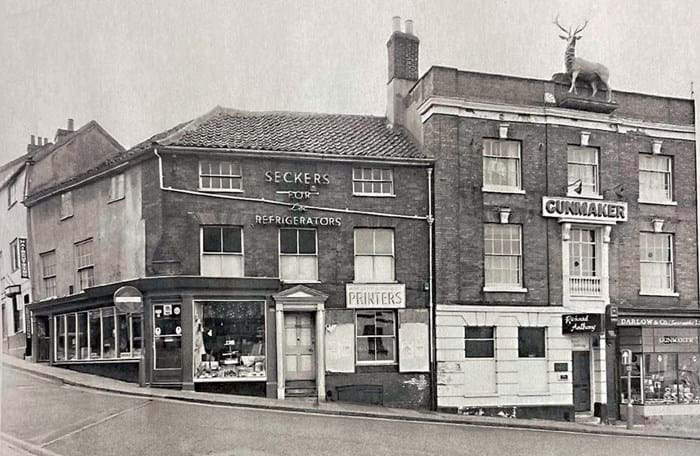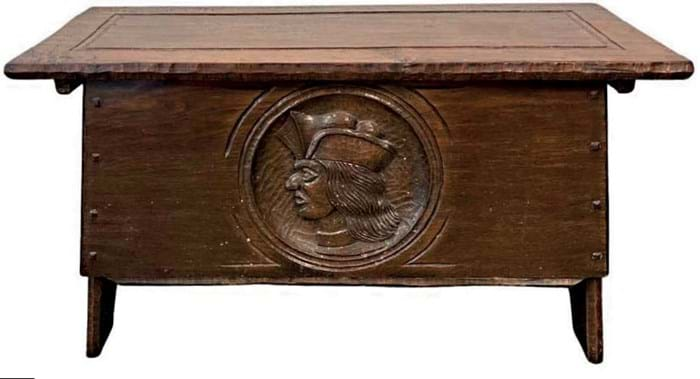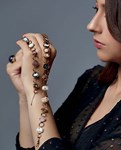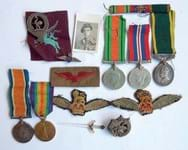
Black and white photographs of the gunsmiths Darlow & Company, once located at number 8 Orford Hill in the Mancroft area of the city, show the 8ft 10in (2.7m) sign still in situ. It was positioned above a portico and below the imposing carved stone stag that still sits on top of the Grade II-listed Georgian building.
The early 20th century sign with 17½in (44cm) high capital letters reading simply Gunmaker came for sale as part of the inaugural auction held by The Rostrum (20% buyer's premium) over two days in Thorpe Market, Roughton, on August 19-20. As a small example of local history and a large decorative object it brought £850.
Although new to the Norfolk auction scene, the firm brings together an experienced team and consultants familiar with the East Anglia market.
Grimble furniture
The sale included a series of pieces of oak occasional furniture by Jack Grimble of Cromer.
Although not so well known, Grimble is often compared to Robert ‘Mouseman’ Thompson and his Yorkshire followers. He worked on the Sandringham estate and produced commissions for the royal family but also sold pieces of oak occasional furniture from his shop in Cromer.
Like Thompson, his Arts & Crafts style followed a careful study of medieval English furniture techniques, construction and materials. Unlike Thompson, his pieces are still very affordable.
Five pieces by Grimble included two oak blanket boxes carved with portrait roundels sold at £140 each (estimate £80-120) and a spinning chair at £45 (estimate £50-80).
Also at the August sale was a Herend porcelain coffee set in the Cornucopia Tupini pattern, c.1890, sold for £1200 via thesaleroom.com.
This particular pattern with its glittering enamel colours and Perisan motifs was inspired by Arabian ceramics and appealed to customers in the Middle East. Famously the Shah of Persia himself ordered a set from the Hungarian factory.
















